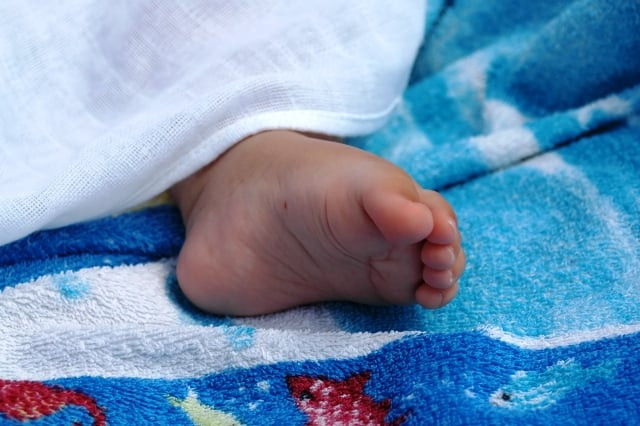China eases one-child policy, abolishes labour camps
Public was outraged last year when photos circulated online of woman forced to abort her baby 7 months into pregnancy.

Public was outraged last year when photos circulated online of woman forced to abort her baby 7 months into pregnancy. PHOTO: FILE
The decisions were taken by the standing committee of the National People's Congress, China's rubber-stamp parliament, at the conclusion of a six-day meeting, according to Xinhua news agency.
The widening of existing exceptions to the one-child policy will allow couples where either parent has no siblings to have two children, reforming the strict family planning policy imposed more than three decades ago to prevent overpopulation in the world's most populous nation.
The abolition of re-education through labour, known as "laojiao", will see existing inmates freed, Xinhua said.
"Their remaining terms will not be enforced any more," it quoted the NPC resolution as saying.
China argues its one-child limit kept population growth in check and supported the country's rapid development that has seen it soar from mass poverty to become the world's second-largest economy.
But enforcement of the policy has at times been excessive. The public was outraged last year when photos circulated online of a woman forced to abort her baby seven months into her pregnancy.
Now China faces looming demographic challenges, including a rapidly increasing elderly population, a shrinking labour force and male-female imbalances.
China's sex ratio has risen to 115 boys for every 100 girls, while the working population began to drop last year, Xinhua said earlier.
The birth rate has fallen to about 1.5 since the 1990s, well below the replacement rate, it added.
While the easing of the one-child policy - estimated to apply to around 10 million couples - has been welcomed, critics say that the state has retained the principle of deciding itself how many children people should have.
Provincial congresses and their standing committees will decide on implementing the new policy "based on evaluation of local demographic situation and in line with the law on population and family planning as well as this resolution," Xinhua said, citing the resolution document.
The one-child policy reforms are expected to come into force in the first quarter of 2014, according to a senior official from the National Health and Family Planning Commission, Xinhua reported last week.
The approval to end the labour camps, introduced more than half a century ago, closes the curtain on a dark aspect of the country's modern history long criticised by human rights groups and which Chinese authorities admit is no longer viable.
China began re-education through labour in 1957 as a speedy way to handle petty offenders. But the system - which allows a police panel to issue sentences of up to four years without trial - soon became rife with abuse.
State media have cited the development of China's legal system as making the camps "superfluous", with their "historical mission" having come to an end.
A UN report published in 2009 estimated that 190,000 people were held in the camps.
But campaigners have questioned whether the move to shutter the camps is simply a cosmetic change and are closely watching whether they are substituted with new forms of control.
The decisions came just days after the standing committee had expressed support for them and following promises by the ruling Communist Party at its Third Plenum meeting last month. Legislative approval was formally required to put them into effect.
The Third Plenum meeting has historically been an occasion for the ruling party to expand reforms, and was the first such gathering since Xi Jinping took over as head of the party in November last year as part of a once-a-decade change in power.
The party also pledged at the meeting to reduce the scope of the death penalty "step by step" - China is the world's biggest judicial executioner - accelerate reforms to the household registration system and loosen controls on the economy by giving markets a "decisive" role in the allocation of resources.



















COMMENTS
Comments are moderated and generally will be posted if they are on-topic and not abusive.
For more information, please see our Comments FAQ